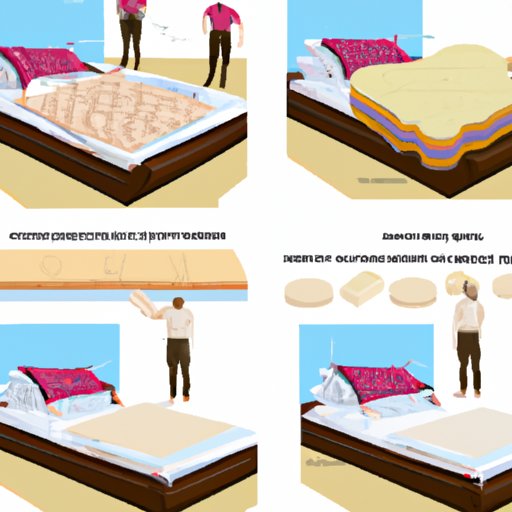Introduction
Bed sores, also known as pressure ulcers or decubitus ulcers, are a common problem among bedridden patients. They occur when the skin is exposed to excessive pressure, friction, or shear, damaging the underlying tissue and causing pain, infection, and other serious medical issues. It is important for caregivers and family members to understand how to prevent bed sores in order to ensure the safety and comfort of their loved ones.
Prevention
The best way to prevent bed sores is to keep the skin from being exposed to excessive pressure, friction, or shear. Here are some tips for preventing bed sores:
Change Patient’s Position Regularly
One of the most important steps in preventing bed sores is to regularly change the patient’s position. This will help reduce the amount of pressure on any one area of the body and decrease the chances of skin damage. Caregivers should strive to change the patient’s position at least every two hours, if not more frequently.
Use Pillows and Foam Wedges
Caregivers can also use pillows and foam wedges to reduce the amount of pressure on the patient’s skin. These items can be placed under the patient’s back, legs, and arms to provide additional support and cushioning. This will help reduce the chances of skin breakdown due to excessive pressure.
Make Sure Bed is Well-Padded with Mattress Overlay and/or Sheepskin
It is important to make sure that the bed is well-padded with a mattress overlay and/or sheepskin. This will help reduce the amount of pressure on the patient’s skin and minimize the risk of bed sores. Additionally, it is important to check the bedding regularly to make sure it is clean and dry.
Keep Skin Clean and Dry
Keeping the skin clean and dry is another important step in preventing bed sores. Caregivers should check the patient’s skin regularly for signs of redness, heat, and swelling, and take measures to keep the skin clean and dry. This may include changing bedding frequently, using skin protectants, and providing gentle skin care.
Provide Good Nutrition and Hydration
Good nutrition and hydration are essential for maintaining healthy skin and preventing bed sores. Caregivers should make sure that the patient is getting adequate nutrition and hydration to support healthy skin and improve wound healing. This may involve providing supplemental nutrition and fluids, as well as monitoring the patient’s intake.
Encourage Patient to Move and Exercise as Much as Possible
Finally, it is important to encourage the patient to move and exercise as much as possible. This will help improve circulation and reduce the risk of bed sores. Caregivers should work with the patient’s healthcare team to develop an appropriate exercise plan that is tailored to their needs and abilities.
Conclusion
Bed sores are a serious problem for bedridden patients, but they can be prevented with proper care and attention. By regularly changing the patient’s position, using pillows and foam wedges, making sure the bed is well-padded with a mattress overlay and/or sheepskin, keeping the skin clean and dry, providing good nutrition and hydration, and encouraging the patient to move and exercise, caregivers can help reduce the risk of bed sores and ensure their loved one’s safety and comfort.


